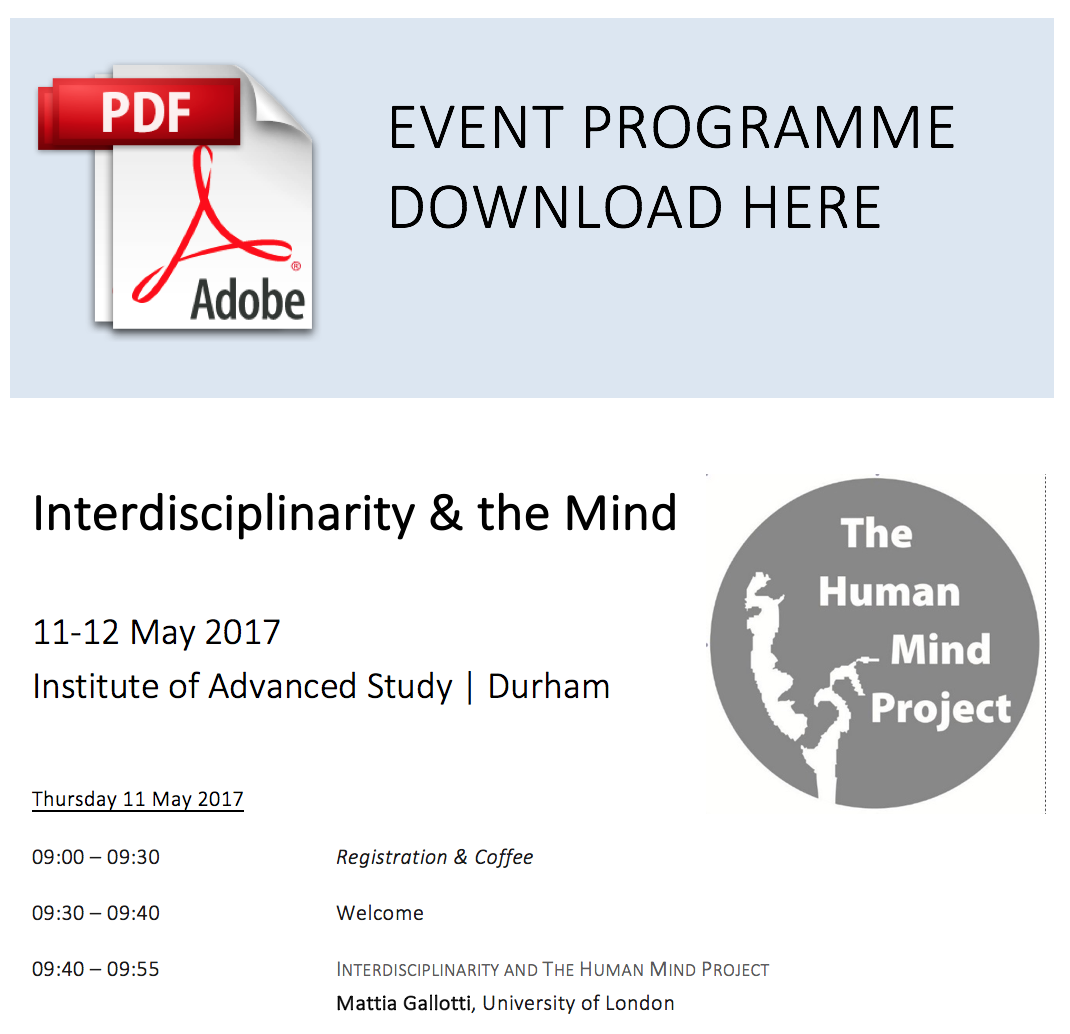Interdisciplinarity & the Mind
11-12 May 2017 | Durham
How does interdisciplinary research transform the way we think about the human mind? And how does human cognition itself effect the scope and direction of interdisciplinary research?
Interdisciplinarity is now widely recognized as central to the enhancement of teaching and scholarship. Many research projects and programs achieve success by bringing together ideas and methods, voices and expertise from across different disciplines.
While thinking across disciplines is vital to knowledge production in some areas of research on the mind, there is relatively little work on how such collaboration can transform conventional thinking on the mind.
This two day workshop hosted by the Institute of Advanced Study at Durham University brought interdisciplinary theory and practice in to dialogue with current research on the mind in a varied programme of talks and discussions.

Speakers
Kathryn Banks (Durham), Robert Barton (Durham), Colin Blakemore (London), Felicity Callard (Durham), Jill Cook (British Museum), Charles Fernyhough (Durham), Paul Fletcher (Cambridge), Carl Gombrich (UCL), Marta Halina (Cambridge), Steven Hill (HEFCE), Tom McLeish (Durham), Christian von Scheve (Berlin), Barry Smith (London).
Chaired by Mattia Gallotti (London) and Veronica Strang (Durham).
Programme
On Day 1, we heard from researchers and policy makers from across the academic spectrum about their experiences of collaborating across disciplinary boundaries. We discussed how we do interdisciplinary work on the mind, and what sorts of challenges and opportunities emerge in the course of a project aimed at aggregating diverse approaches in to a unique synthesis.
On Day 2 we took a reflexive approach, asking what cutting-edge research on the mind can teach us about our intellectual capacities to engage in interdisciplinary work. How does human cognition itself, its mechanisms and processes, effect the scope and direction of interdisciplinary research across the human, social and natural sciences.

